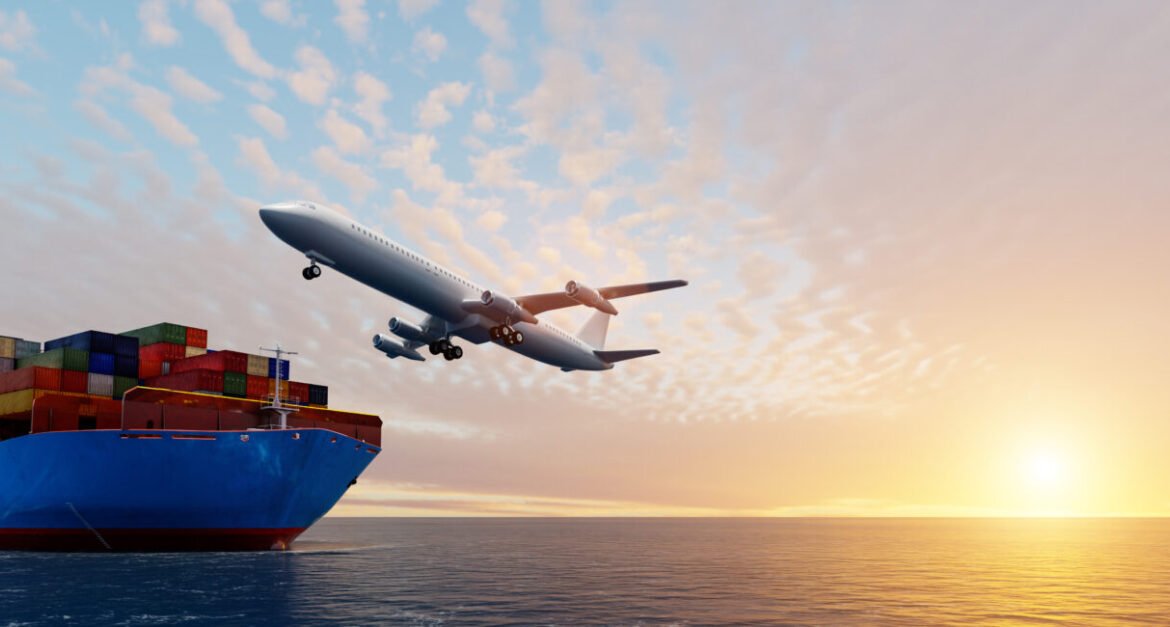
When to Use Air Freight Instead of Sea Freight?
In the world of global logistics and international shipping, choosing the right mode of transportation is crucial for cost-efficiency, timely delivery, and customer satisfaction. Two of the most common shipping methods are air freight and sea freight. While both have their advantages, there are specific scenarios when air freight is the better option over sea freight.
In this blog, we’ll explore when to use air freight instead of sea freight, the key differences between the two, and factors that help make the right choice for your logistics needs.
Understanding Air Freight vs Sea Freight
Air freight involves transporting goods via aircraft. It is known for speed, reliability, and global reach. Sea freight, on the other hand, uses cargo ships to move goods across oceans—ideal for large shipments and cost-effective transport.

1. When Time Is Critical
If you need to deliver goods urgently, air freight is the best choice. It’s significantly faster than sea freight. For instance, shipping from China to India by air may take 2–5 days, whereas sea shipping can take 20–40 days, depending on the port and customs processing.
Examples of urgent air freight use cases:
- Medical supplies or pharmaceuticals
- Seasonal or trend-sensitive products
- Perishable goods (when not shipped via cold chain ocean freight)
- Last-minute restocking for retail outlets
Speed is where air freight wins, and this becomes essential in industries where time equals revenue.
2. When Shipping High-Value or Low-Volume Goods
Air freight is more secure and offers better tracking, monitoring, and insurance options. It’s ideal for small but high-value shipments like:
- Electronics (smartphones, laptops)
- Designer fashion items
- Luxury accessories or jewelry
- High-tech equipment
Since the cost of air freight is calculated by weight and volume (chargeable weight), lightweight and compact goods benefit the most from this mode of transport.
3. When Supply Chain Predictability Matters
Air freight services generally follow fixed schedules, and flights are less likely to face delays compared to ocean liners dealing with port congestion, strikes, or weather disruptions. This makes air freight more predictable and reliable.
If your business depends on just-in-time (JIT) delivery models, tight inventory cycles, or time-sensitive procurement, air freight offers superior planning accuracy.
4. When Accessing Remote or Landlocked Areas
Not every destination has a major seaport. In such cases, airports offer better geographical reach, especially to:
- Landlocked countries or remote regions
- Emergency response zones (disaster relief, military bases)
- Interior markets where inland transport from ports is expensive or slow
Air freight enables faster and more direct access to regions that are less connected by sea routes.
5. When Shipping Fragile or Perishable Items
Air freight involves minimal handling, shorter transit times, and controlled environments, reducing the risk of damage or spoilage.
Products that benefit from this include:
- Delicate electronics
- Fragile medical devices
- Perishable flowers or dairy products
- Urgent samples for testing or inspection
Although ocean freight also offers refrigerated containers (reefers), the extended travel time can still impact shelf life or quality.

Cost Considerations: Air Freight vs. Sea Freight
It’s important to note that air freight is more expensive than sea freight, often 4 to 6 times higher, depending on the route. Hence, the decision to use air freight should be strategic. Use it when:
- The urgency justifies the cost
- The shipment is small but valuable
- Delay would cause greater business losses
For bulk shipments with flexible delivery schedules, sea freight remains a more cost-effective solution.
Final Thoughts
Air freight is not always the default choice, but when used wisely, it can be a powerful tool in your logistics strategy. It enables fast, reliable, and secure delivery that meets the demands of modern global trade.
If your shipment is time-sensitive, valuable, lightweight, or headed to a hard-to-reach destination, air freight is likely the right move. Understanding when and why to choose it over sea freight can enhance supply chain efficiency, improve customer satisfaction, and support business growth.
Need help choosing between air and sea freight for your next shipment?
Contact OrangeStar Logistics for expert guidance and end-to-end freight solutions tailored to your needs.




